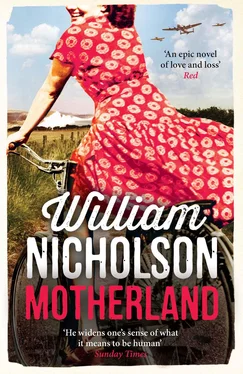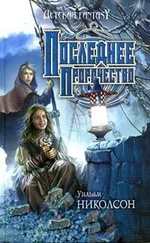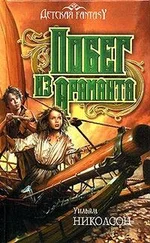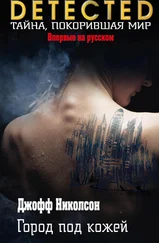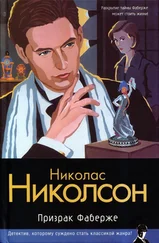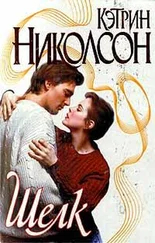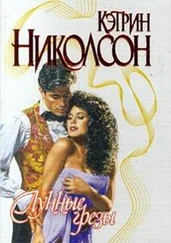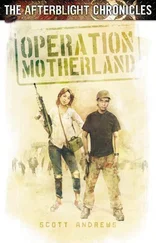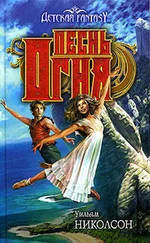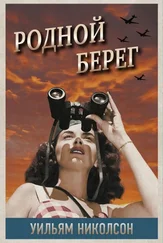She is not arriving unannounced. There has been an exchange of letters. But her grandmother’s letter of invitation was not effusive. Curious to see her, certainly, but guarded, cool.
She crosses the lawn to look into the trees, as if there might be some secret there: a leftover impulse from childhood fairy tales. There is no wall or fence. The garden is a glade in the forest. A few years’ neglect and the tall beeches would advance to the very steps of the old house itself, and press like bars on its windows and doors. And yet it doesn’t make her afraid. This is not the tormented forest of nightmares. Beech alleys form spaces that are light-speckled, domesticated, a chain of rooms that go on for ever. You could go wild here, and be safe.
Turning back, she sees a figure standing in the open French windows. She’s slim, with short-cropped silver hair and smooth lightly tanned skin. A long white blouse loose over jeans. Her arms raised in a gesture of welcome.
‘You’ve come! How wonderful!’
Wide brown eyes watch Alice cross the grass towards her. Shining eyes that give full attention, that want to know everything. No holding back here.
‘Darling one!’ she says. ‘What took you so long?’
Alice is flooded with an inexplicable wave of happiness. This silver-haired woman, this never-known grandmother, is simply beautiful. Alice, who has never been beautiful, sees in her at once herself as she could have been; herself as maybe one day she could be.
Pamela Avenell takes both Alice’s hands in hers and studies her with rapt wondering attention. Alice feels infinitely precious under that gaze.
‘You’ve got my eyes.’
‘Have I?’ says Alice.
‘Of course you have. I saw it at once.’
‘I can hardly believe it,’ says Alice. ‘You’re so beautiful. How can you be my grandmother?’
‘I’m sixty-nine, darling,’ says Pamela. ‘But don’t tell a soul.’
‘I just can’t believe it,’ says Alice again.
They stand there like fools, holding hands, grinning at each other, looking and looking. Alice doesn’t know why this makes her so happy, nor does she ask herself.
‘Come into the house,’ says Pamela. ‘Let’s have a drink and tell each other everything. It’s far too hot outside.’
In the house she calls out, ‘Gustave!’ and the driver appears from an inner room. She speaks to him rapidly in excellent French, touching him lightly on one arm before he departs to carry out her orders.
‘Gustave is an angel,’ she says. ‘I simply don’t know how I managed before he came.’
They’re sitting down and her big brown eyes are fixed on Alice once more.
‘So you’re my granddaughter,’ she says. ‘How cruel and wicked of Guy to hide you away from me.’
‘He hid me away from himself,’ says Alice. ‘He never wanted me. I was an accident.’
‘He never wanted you.’ Her gaze is penetrating ever deeper into Alice, past all her defences. ‘Oh, my dear. I know all about that.’
‘I’m not blaming him. My mother says it was all her own choice.’
‘No, there’s nothing to be gained by blaming people. But that doesn’t stop us doing it.’
Gustave comes back into the room carrying a tray of drinks. He sets it down on the low table between them. There’s a bottle of Noilly Prat, two glasses, a plate of biscuits.
‘Chilled vermouth,’ says Pamela, pouring golden liquid into the glasses. ‘Just right for a hot day.’
She thanks Gustave with a quick smile, and he departs again. Alice takes her glass.
‘To accidents,’ says Pamela.
She’s wearing no make-up, Alice thinks. Her hair isn’t dyed. How can she be almost seventy, and so beautiful?
‘I don’t understand why Guy hasn’t told me about you before,’ Alice says. ‘He should be so proud of you.’
‘Ah, well. These things go back a long way. But I don’t want to talk about me. I want to know all about you.’
Under her grandmother’s intoxicating gaze, Alice tells her life so far. How sometimes a love affair ends for no reason except it’s your first and you’re too young and there’s so much more you need to find out about yourself. How you drift apart and only know it’s happened when the space between you has grown too wide, and you reach across and find you’re no longer touching. How the old questions which you thought had gone away turn out to have been waiting all along, as unanswerable as ever. What do I really want? Who am I when it’s just me? When I love again, will I love with all my heart?
She hears herself say, ‘If I love only him, I’ll be a smaller person than I know I can be.’
‘How wise you are, my darling,’ says Pamela. ‘I wish I’d known that when I was your age. How old are you? Twenty-one?’
‘Twenty-three.’
‘When I was twenty-three I had a husband and a baby.’
The husband was Alice’s grandfather. His name was Hugo Caulder. This much Alice knows. The baby was Guy. The baby is Guy.
‘Guy said something about you marrying the wrong man.’
‘Yes, I did. As a matter of fact, I’ve done it three times. You’d think I’d learn.’
‘I want to learn,’ says Alice.
‘Not from me.’ Pamela laughs. ‘Unless you study everything I’ve ever done and do the opposite.’
‘I want to learn about who I am. Some of me comes from Guy. And some of him comes from you.’
‘Well, yes,’ says Pamela. ‘It’s all rather devastating, isn’t it? You see the patterns more clearly as you grow older.’
‘Guy says I come from a long line of mistakes.’
‘Does he, now? What a little beast he is. I bet he didn’t tell you our one true love story.’
Our one true love story. Like the unicorn: beautiful, impossible, long sought but never found.
‘Is it yours?’
‘Mine? No, it’s certainly not mine.’ She refills their glasses with vermouth. ‘It’s my mother’s story. Your great-grandmother’s.’
She raises her glass, as she did before.
‘To mothers,’ she says.
‘And grandmothers,’ says Alice.
They both drink. Alice feels the vermouth warming her inside.
‘I adored my mother,’ says Pamela. ‘You can’t imagine how much I adored her. Then later, I envied her. I wanted to be loved as she was loved. Don’t you find the trouble with love stories is that they make you sad? You want to have a love story like it for your very own. You go on looking for it and looking for it. And you don’t find it.’
‘But your mother did.’
‘Yes, she did.’
She gets up and takes a framed photograph off the wall. The frame is far too grand for the photograph, which is an old snapshot of three young people: a woman between two men. The woman is young and pretty, in the slightly artificial manner of the 1940s. The men gaze at the camera with that bold self-confidence that is somehow so heartbreaking to see today: boys who believe themselves to be men. One of them, the good-looking one, doesn’t smile. The other smiles.
‘That’s my mother,’ says Pamela. ‘She was called Kitty. That’s my father, Ed Avenell. And that’s my father’s best friend, Larry Cornford.’
‘Your mother was very pretty,’ says Alice.
‘Your great-grandmother. And wasn’t my father handsome?’
‘Very.’
‘He won the Victoria Cross.’
‘How?’
‘I’ll tell you. And what do you think of Larry?’
Alice studies the friendly smiling face in the photograph.
‘He looks nice,’ she says.
‘Nice. Poor dear Larry. How he’d hate that.’
1
The staff cars are pulled up by the coastguard cottages, close to the cliff edge. A steady drizzle is falling and visibility is poor. A cluster of officers stand in glistening greatcoats, binoculars raised, tracking the movements on the beach below.
Читать дальше
